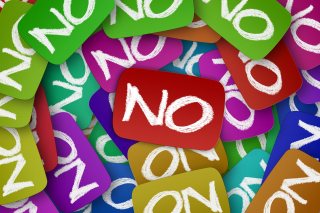Up to Date vs. Up-to-Date ��� When to Hyphenate?
A general  rule for hyphenation is that phrases used as an adverb do not use hyphens while phrases used an adjective do. Such is the case with up to date vs. up-to-date.
rule for hyphenation is that phrases used as an adverb do not use hyphens while phrases used an adjective do. Such is the case with up to date vs. up-to-date.
Up to date is an adverb phrase meaning that something was brought current. For example, Our supervisor required us to bring our accounts reports up to date. It does not take hyphens.
Up-to-date is an adjective phrase that means something includes the most recent information. To wit, Molly���s up-to-date history textbook includes the results of the last presidential election. It needs hyphens.
Knowing whether or not you need hyphens is simply a matter of determining which word the phrase modifies. In the first example given here, up to date modifies brings, which is a verb, so you have an adverb phrase and no hyphens. For the second example, up-to-date modifies textbook, which is a noun, so you have an adjective phrase and hyphens.
Professional Book Editor: Having your novel, short story or nonfiction manuscript proofread or edited before submitting it can prove invaluable. In an economic climate where you face heavy competition, your writing needs a second eye to give you the edge. I can provide that second eye.
<A HREF=���http://ws-na.amazon-adsystem.com/widg... Widgets</A>
Related articles
 Five Great Quotations about the Writing Process
Five Great Quotations about the Writing Process Writing Inspiration: Who are you?
Writing Inspiration: Who are you? Writing Inspiration: Seek another's advice
Writing Inspiration: Seek another's advice Make tables readable in your self-published book
Make tables readable in your self-published book Four ways to write a great tweet that sells books
Four ways to write a great tweet that sells books



